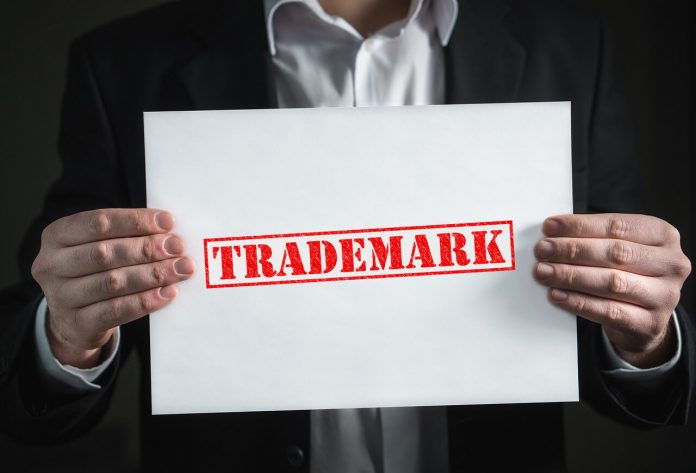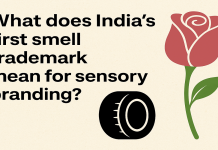This article is written by Oishika Banerji of Amity Law School, Kolkata. This article deals with a comparison between infringement and passing off action in a trademark by means of case laws.
Table of Contents
Introduction
Trademark infringement is the consequence of unauthorized use of a trademark that originally belongs to another person. The passing-off action provides protection to unregistered products and services, whereas the trademark provides protection to registered goods and services. The most essential distinction is that the remedy is the same in both circumstances, but trademark protection is limited to registered products and services, whereas passing off is applicable to unregistered goods and services.
The Supreme Court defined the difference between infringement and passing off in the case of Durga Dutt vs. Navaratna Pharmaceutical (1960). The Court held the following:
- An infringement action is a statutory remedy available to the registered owner of a registered trademark who has the exclusive right to use the mark in respect to those products. Unregistered products and services are also eligible for passing off.
- The second most crucial issue is that in a case of passing off, the defendant’s use of the plaintiff’s trademark is not required; but, in a case of infringement, this is required.
- The third important distinction between these two is that if the defendant has adopted the plaintiff’s essential features of the trademark, the fact that the defendant’s get-up, packing, and other writing or marks on the goods or on the packets in which he offers his goods for sale marked differences or clearly indicate a trade origin different from that of the registered owner of the mark would be immaterial.
However if the defendant has passed off, the defendant may escape liability. This article provides a detailed analysis of trademark infringement and passing off actions available to the trademark users through the lenses of various case laws.
Infringement action in trademarks
Section 29 of the Trademarks Act, 1999 lays down the provision for infringement of registered trademarks which states that a person who, without being a registered proprietor or a person using by way of permitted use, uses in the course of business a mark that is identical to, or deceptively similar to, the trademark in relation to goods or services for which the trademark is registered, and in such a way that the use of the mark is likely to be taken as being used as a trademark, infringes on the trademark.
Astra IDL Ltd v. TTK Pharma Ltd (1992)
The Bombay High Court in the case of Astra IDL Ltd v. TTK Pharma Ltd (1992) laid down the test for determining infringement of a trademark. The Court observed that in order to decide whether there has been any kind of infringement or not, the impact of infringing a trademark on the purchaser needs to be considered. Only if the complete impression of the trademark is likely to cause deception in the purchaser’s mind, infringement of the trademark is said to be caused. The Court in this case also clarified that the likelihood of confusion will be sufficient ground for an infringement case to take place, establishing actual confusion is not a necessity in trademark infringement cases.
Bombay Oil Industries v. Ballarpur Industries (1989)
In the landmark judgment of Bombay Oil Industries v. Ballarpur Industries (1989), the Delhi High Court laid down the common forms of trademark infringement. The various forms as observed by the Court have been laid down hereunder:
- Any mark that appears to be identical to an already registered mark and is being used by an unauthorized person in relation to similar business like the latter’s will amount to registered trademark infringement.
- If a registered trademark that belongs to someone is advertised for the promotion of trade by another without the former’s consent will amount to infringement.
- If a registered trademark is used in the form of spoken words or represented by an unauthorized owner, the same amounts to infringement as well.
- If the unauthorized application of a registered trademark is made for the purpose of labeling or packaging goods, it will lead to infringement of the registered mark.
- Usage of deceptively similar marks as to goods and services for the purpose of trade thereby causing deception among consumers will cause infringement.
- Printing of a label of a registered trademark in an unauthorized manner amounts to infringement.
- Unauthorized use of registered trademarks on second-hand articles results in infringement.
Playboy Enterprises, Inc v. Bharat Malik (2001)
In the well-known case of Playboy Enterprises, Inc v. Bharat Malik (2001) that appeared before the Delhi High Court, the plaintiff had filed a lawsuit seeking a permanent injunction against the defendant, a Playway magazine publishing company. It was claimed that the plaintiff’s and defendant’s magazines are largely sex-oriented and that the infringer magazine ‘Playway’ was also intermingled with information on current affairs, national interests, celebrity interviews, comedy, and photos of semi-nude models, among other things. The plaintiff’s complaint was that the use of the word “PLAY” from the mark PLAYBOY was ill-motivated, illegal, deceptive, and even phonetically similar to the mark PLAYBOY, resulting in a blatant infringement of the plaintiff’s registered trademark. The Hon’ble High Court restrained the defendant from using the trade name “PLAY” on the ground that the same word was the soul of the plaintiff’s registered trademark and the defendant had used it with the intention of destroying the goodwill of the plaintiff’s company.
Glaxo Smith Kline Pharmaceuticals v. Unitech Pharmaceuticals Pvt. Ltd (2005)
In the case of GlaxoSmithKline Pharmaceuticals v. Unitech Pharmaceuticals Pvt. Ltd (2005) that appeared before the Delhi High Court, the plaintiff had alleged that the defendants were selling products with the trademark ‘FEXIM’ that were confusingly similar to the plaintiff’s trademark ‘PHEXIN’, which was used for pharmaceutical preparations. The defendants were selling antibiotic tablets bearing the trademark ‘FEXIM,’ and packaging that looks deceptively similar to that of the plaintiff, with the intent of not only infringing on the trademark but also passing off the goods as those of the plaintiff because the two marks were phonetically similar. The defendants were barred from using the trademark ‘FEXIM,’ because the said trademark appeared to be confusingly similar to the plaintiff’s trademark ‘PHEXIN,’ along with the packaging material resulting in deceiving the purchasers.
Case of no infringement : an insight
There is no straight-jacket formula to decide as to what cases do not fall within the ambit of infringement, but the judiciary by means of several judgments has clarified the necessities that need to be complied with to file an infringement case. One such well-known judgment has been discussed hereunder.
S.M. Dyechem Ltd. v. Cadbury (India) Ltd. (2000)
In the case of S.M. Dyechem Ltd. v. Cadbury (India) Ltd. (2000), the Supreme Court of India observed that in trademark cases, the tension is between protectionism on the one hand and allowing competition on the other. In this case, the plaintiff’s label included a curving script of the word ‘PIKNIK’ with a caricature of a tiny child wearing a hat in between the letters ‘K’ and ‘N.’ The writing and the small boy’s figure were the most important aspects, and not the term ‘PIKNIK.’ The plaintiff’s label had to be considered in its entirety. Plaintiff was selling potato chips and potato wafers in a polythene pouch. He did not sell chocolates, despite having registration for chocolates under Class 30. The defendant was marketing under the trade label ‘Cadbury’s PICNIC’ in a polythene pouch and hence both marks were different.
Cadbury was a well-known brand in India, and the defendant had been selling chocolate since 1948. In India, the term had practically become associated with chocolates, as seen in the names ‘Cadbury Dairy Milk,’ ‘Cadbury Five Star,’ and so on. Neither there was room for dishonesty at all nor any violation or misrepresentation. The High Court thus upheld the respondent’s appeal and overturned the temporary injunction ruling based on these grounds. It is necessary to note that this judgment was overruled by a three-judge Bench of the Apex Court in the case of Cadila Healthcare Ltd. v. Cadila Pharmaceutical Ltd. (2001) which has been discussed later in this article.
Passing off action in trademark
Section 27 of the Trademarks Act, 1999 provides that no action for infringement will take place for an unregistered trademark. When a trader makes a misrepresentation that harms the plaintiff’s goodwill, the passing-off action arises. Put simply, whenever a trader makes a misrepresentation in the course of his or her business, it injures the business of another trader and causes actual damage to the trader’s business or goodwill thereby resulting in the passing off action.
K. Narayanan and Anr. v. S. Murali (2008)
A bench of Justices Tarun Chatterjee, Harjit Singh Bedi of the Supreme Court of India observed that mere filing of an application for trademark registration would not constitute a part of the cause of action in a suit for passing off, in the notable case of K. Narayanan and Anr. v. S. Murali (2008). The Court observed that a suit may be filed where a trademark or copyright is infringed upon, but the cause of action for filing the suit would not arise within the Court’s jurisdiction simply because an advertisement in the Trademarks Journal or any other journal notifying the factum filing of such an application has been published. The Apex Court held that the appellants were unable to file a suit in the High Court of Madras seeking an injunction to prevent the respondent from passing off his goods under the trademark ‘A-ONE’ solely on the basis of the claims made in the respondent’s trademark application filed with the Trademark Registry. This was because the necessary elements of a passing-off action were missing.
Cadila Healthcare Ltd. v. Cadila Pharmaceuticals Ltd. (2001)
The case of Cadila Healthcare Ltd. v. Cadila Pharmaceuticals Ltd. (2001) had been a key decision in the area of trademark passing off. In this case, it was decided that a passing-off action was possible in the case of unregistered trademarks only. The passing-off action is based on the idea that no one has the right to represent their commodities as someone else’s goods. In other words, a man is not allowed to sell his goods or services under the guise of someone else’s. Both the appellant and the respondent were pharmaceutical businesses that had taken over the Cadila Group’s operations when it was restructured under the Companies Act, 2013. The right to use the term Cadila was awarded to both companies. The appellant company first produced a medicine to treat cerebral malaria under the brand name ‘Falcigo,’ and was granted a license to sell it across India by the Drugs Controller of India in 1996. The respondent was also granted authorization to sell medications for cerebral malaria under the name ‘Falcitab’ in 1997.
The Hon’ble Supreme Court concluded that there was a likelihood of passing off and that it was a matter of deceptive likeness after examining the requirements of the Trademarks Act, 1999 and Section 17-B of the Drugs and Cosmetics Act, 1940. A bench of Justices B.N. Kripal, Doraswamy Raju, and British Kumar of the Supreme Court of India had laid down seven guidelines that were to be considered for determining deceptive similarity in action based on passing off, namely:
- The nature of the mark;
- The degree of similarity between the marks;
- The nature of goods in whose respect the mark is being used;
- The similarities in terms of nature, character, and performance with the trademark of the rival trader;
- The class of purchasers who are supposed to be purchasing the concerned product;
- The mode of purchasing;
- Any other surrounding circumstance that contributes to the similarity index.
Kaviraj Pandit Durga Das Sharma v. Navaratna Pharmaceutical (1965)
The Supreme Court had laid down the differences between a passing-off action and trademark infringement in the well-known case of Kaviraj Pandit Durga Das Sharma v. Navaratna Pharmaceutical (1965). The Court pointed out that while passing off action is a common law remedy, infringement has been a statutory remedy. By virtue of the proviso of Section 6(3) of the Trademark Act, 1999, a mark that is not “adapted to distinguish” by the application of the requirements provided out in Section 6(1) of the Act may nonetheless qualify for registration by proof of acquired distinctiveness. The Apex Court after taking into consideration the said provision held that the term “distinctiveness” could not mean “suited to distinguish,” because if it did, the proviso would contribute nothing to the provision and would make no difference in the law between new and old marks that had been in use continuously before the designated date. It was therefore impossible to accept a construction that would put old and new marks on the same footing and subject them to the same registration criteria.
Satyam Infoway Ltd. v. Sifynet Solutions Pvt. Ltd. (2004)
The case of Satyam Infoway Ltd. v. Sifynet Solutions Pvt. Ltd. (2004) holds relevance because it was related to the passing off action in the case of internet domain names. Taking into account that India terribly lacks effective legislation to govern domain names and the ambit of the Trademarks Act, 1999 is not divergent enough to provide safeguard to domain names, the Supreme Court of India intended to confer protection to the same. Although statutory remedy is absent when it comes to internet domain names, common law remedy remains available in form of passing off action for legally safeguarding internet domain names. This judgment has been a revolutionary one amidst technology spreading its claws at an accelerated rate.
Conclusion
As we come to the end of this article, it is evident to mention that it is usually preferable to register a trademark because it gives the possessor legal ownership of the mark. Furthermore, the owner does not have to establish prior usage in the case of infringement, and a suit for infringement allows the owner to file a claim for damages. Therefore, although a choice in concern with the registration of the trademark is being offered by the Trademark Act, 1999, registration always carries more weightage when placed in comparison with unregistered trademarks.
References
- https://www.researchgate.net/publication/261181560_Passing_Off_and_Infringement_of_Trademarks_-_India
- https://www.intepat.com/blog/trademark/trademark-infringement-v-passing-off/
- http://www.legalservicesindia.com/article/1254/Passing-off-under-trademark.html
- https://www.indialawoffices.com/knowledge-centre/infringement-and-passing-off
LawSikho has created a telegram group for exchanging legal knowledge, referrals, and various opportunities. You can click on this link and join:
https://t.me/joinchat/J_0YrBa4IBSHdpuTfQO_sA
Follow us on Instagram and subscribe to our YouTube channel for more amazing legal content.
 Serato DJ Crack 2025Serato DJ PRO Crack
Serato DJ Crack 2025Serato DJ PRO Crack











 Allow notifications
Allow notifications


